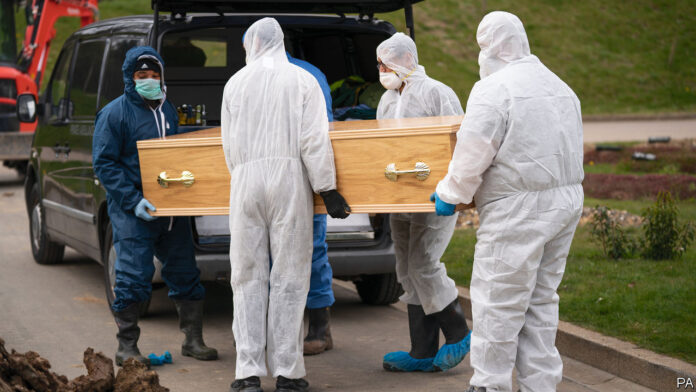The Co-op has released a report which reveals the devastating impact lockdown has had on Manchester’s ability to grieve and warns the region could yet face a grief pandemic.
An online YouGov survey, commissioned by the UK’s leading funeral provider Co-op Funeralcare, shows that in the weeks following the start of the UK’s lockdown on 23rd March, 47% of bereaved adults in Manchester have been denied their final farewell.
Although a necessary measure to protect our nation during the coronavirus pandemic, the restrictions on the number of funeral attendees mean that many have been unable to attend their loved one’s funeral, with some councils prohibiting any attendees at crematoriums and gravesides.
When asked about the most important way to say goodbye, 42% of UK adults chose being present when their loved one passes away, whilst 33% chose attending a funeral or memorial service. Sadly, in a bid to slow the spread of Covid-19, neither of these goodbyes have been an option for an estimated 243,000 bereaved families.
Funerals play an intrinsic part in the grieving process, and by being unable to attend, many have been unable to grieve the loss of their loved one. The survey revealed that 37% of mourners have been unable to pay their respects by attending a funeral service, whilst 45% of people said the funeral went ahead, or will go ahead, with restricted attendance in person only.
A harrowing estimate of more than 133,000 bereaved families who have lost a loved one during lockdown said their grief process has been negatively affected by the restrictions in place, with over three fifths (61%) saying that nothing in particular has helped them to grieve. This inability to grieve at present means the nation could experience a prolonged period of mourning for months, or even years, to come.
David Collingwood, Director of Funerals at Co-op Funeralcare said: “A funeral provides a sense of closure for bereaved families and is very often the start of the grieving process. Sadly, the recent restrictions mean an estimated 243,000 bereaved families across the UK and tens of thousands across Manchester have been denied the right to say goodbye to loved ones in the way they would have wished.
“We completely supported the need to introduce these restrictions at the beginning of the devasting Coronavirus pandemic in the UK. We had to make some tough but responsible decisions to protect our colleagues and clients, and to fulfil our social responsibility of slowing the spread of the disease.
“Tragically, we don’t yet know what the long-term psychological effects will be for families denied the last opportunity to say goodbye, so it is vital that we do everything possible to allow families and individuals to attend funerals, whilst always prioritising the health and safety of our communities.”
Andy Langford, Cruse Bereavement Care Clinical Director said: “The coronavirus pandemic has meant it is an incredibly distressing time to be grieving, whenever your bereavement occurred. Many people have been grieving in isolation, unable to attend funerals, say goodbye, and be close to those they love. When you feel you have no control over how you can experience those last moments with someone, this can have a profound impact on the grieving process.” *
Whilst grief itself is not a mental health problem, it can cause mental health problems for some of us. Co-op is working with its partners Mind, SAMH and Inspire to encourage those affected by grief to access support from bereavement charities before their mental health deteriorates.
Stephen Buckley, Head of Information at Mind said: “The loss of a loved one during the pandemic is leaving many people struggling with grief. In most cases, grief is not a diagnosable mental health problem. It is absolutely normal that grief places strain on our everyday lives and it can take a long time to adapt to life after a loss.
“If you feel that your mental health is suffering following a bereavement beyond the stages of grief or if you have an existing mental health problem that is being worsened following a bereavement and you’re struggling to cope, it’s important to seek help, speak to a loved one, GP or contact a bereavement charity.”







